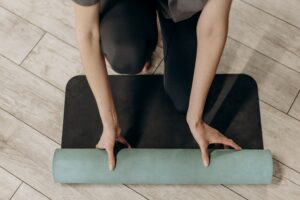 Technalink has been a strong advocate for the positive benefits that come from meditation. However, as many people have pointed out—to the point that comedians often make it a feature of their humor about meditation—there is a lot of emphasis on breathing. Many people interested in meditation are sometimes reluctant because they wonder, “I breathe all the time, so do I have to start thinking about it?”
Technalink has been a strong advocate for the positive benefits that come from meditation. However, as many people have pointed out—to the point that comedians often make it a feature of their humor about meditation—there is a lot of emphasis on breathing. Many people interested in meditation are sometimes reluctant because they wonder, “I breathe all the time, so do I have to start thinking about it?”
Here’s why learning how to meditate puts a focus on breathing.
Your Breath Is Your Life
It’s no exaggeration to say that your life requires adequate breathing. Just a few minutes without oxygen is enough to cause people to lose consciousness and eventually die. However, because breathing is an automatic process, we often don’t give it much thought or pay attention to it.
When learning how to meditate, everything starts with your breath, as it is a general reflection of your state of being. When you are stressed or physically active, this is reflected by the shorter, more rapid breaths you take. When you are calm and restful, such as when asleep, your breath shows this by being slow and deep.
Being able to control your breath can reverse this process and impose a state on your body that you want, rather than your breath simply being a sign of the current state. Giving your breath structure and taking more slow, deep, controlled breaths forces your body to be more calm and relaxed. And relaxation is one pillar of learning how to meditate effectively.
It Is An Easy Gateway To Mindfulness
Mindfulness, that is, an ability to break up the usual train of runaway thoughts and speculations, and focus entirely on the present, can be challenging for some, but controlled breathing is one of the most effective ways to create a state of mindfulness. Because we breathe all the time, this is a “meditation accessory” we always have with us, even if we forget to bring our mala prayer beads that day.
Because breathing is something you can easily do at any given time, it’s the easiest thing to focus on when trying to attain a state of mindfulness. Concentrating on the many sensations of breathing is a straightforward way to put yourself in the present, aware of only what is happening now. In fact, “mindful breathing” is one the simplest beginner techniques for people learning to meditate.
A Cornerstone For Control
As said before, everything starts with breathing. And being aware of breathing enough to exert breath control is a cornerstone of a healthy mind and body. Many disciplines, such as martial arts and fitness, eventually incorporate some breathing control as a means to be more efficient in improving skill, activity, and endurance.
So while breathing may be easy to do without thinking about it, it can be challenging but very rewarding in terms of stress reduction, focus, and general health; stop allowing breathing to be a strictly involuntary, subconscious action and use it to build up more mental and physical benefits for a greater sense of overall wellness. Breathing is fundamental, so once you have more control over it, more activities based around breathing, including meditation, exercise, and athletics, can also improve.
It’s For Everything
So if you’re thinking about learning how to meditate, or it is something you’re already doing, give more thought to your breathing, and try allocating more time and focus on it. Breathing can be an important way to exert bodily control and can even lead to stress reduction and calmer thinking during what would normally be high-anxiety moments. Good breathing can’t solve everything, but it can mitigate the more negative aspects of many situations.
Leave a Reply